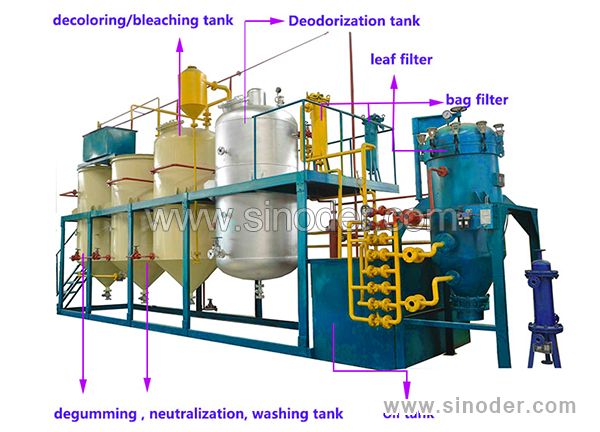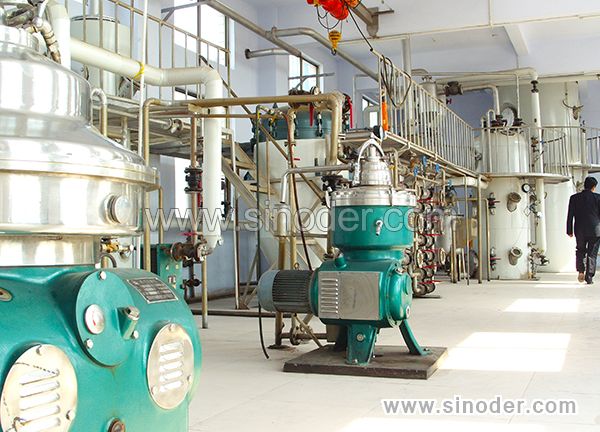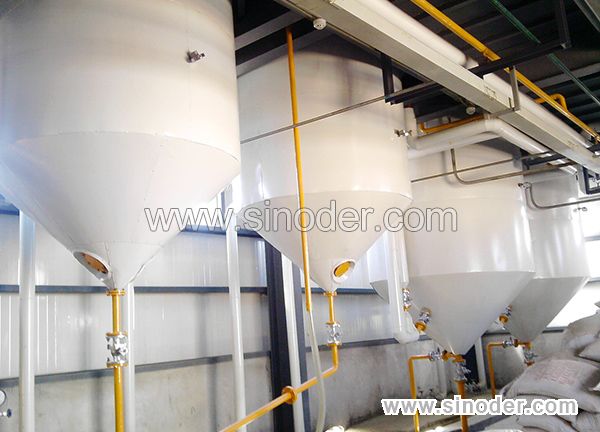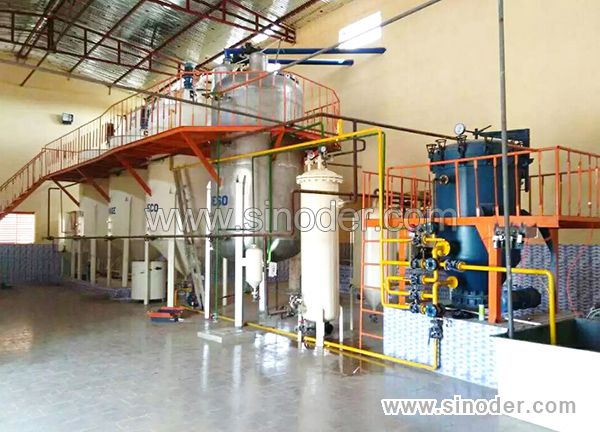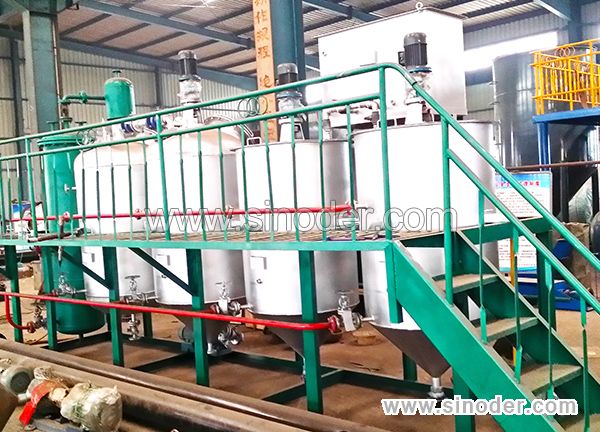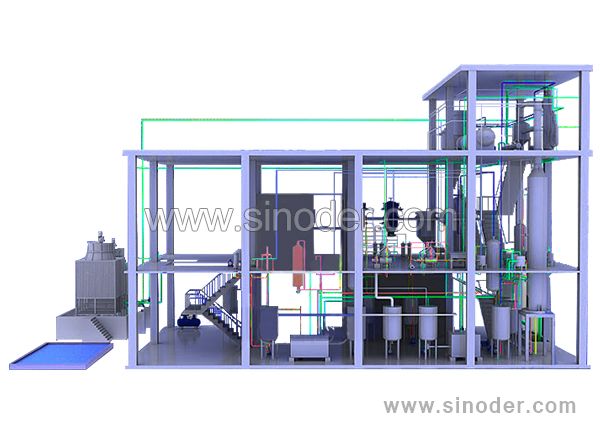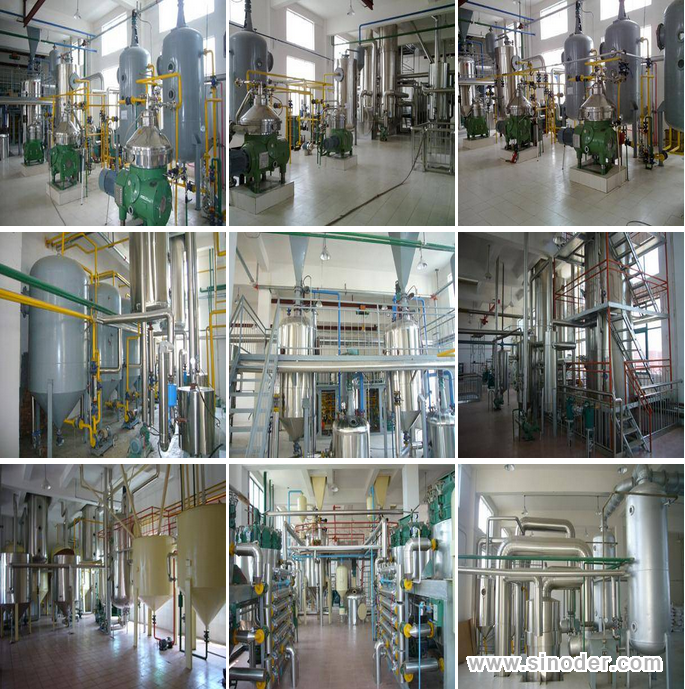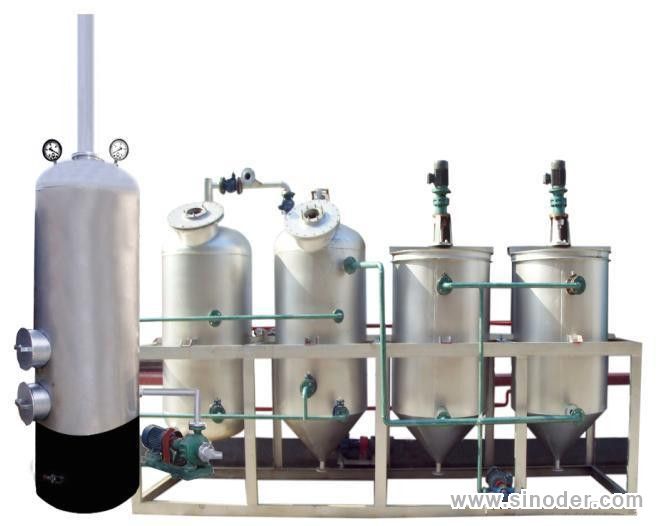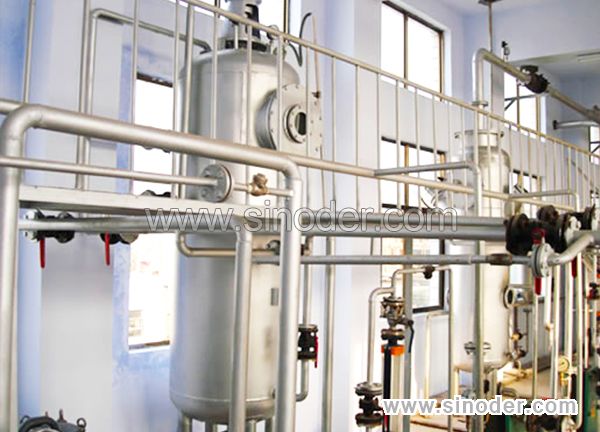Oil Refinery Machinery, Oil Extraction Machine, Oil Mill Plant, Oil Extraction Plant
Edible Oil Refining From Vegetable Plants
Edible oil refining includes a series processing procedures as degumming, neutralization, bleaching, deodorization and winterisation. In general there are two methods of vegetable/edible oil processing, one is physical refining and the other is chemical refining. However, no matter what kinds of reining methods, they are all done with the help of various oil processing equipment and machinery, and are used to refine almost all kinds of oil extracted from oil seeds like sunflower seeds, peanuts , sesame seeds, and soya bean seeds etc.
 The following main equipment are necessary: Lye tank, Hot Water Tank, Water Ejector, Water and Steam Ejector, Steam Header, Soapstock Vessel, Refining Tank, Decolorizing tank, Deodorizing Vessel, Oil separator, Vapor Superheader, Oil Seperating Tank, Clay Tank, Filter, Alkali Dissolving Tank, Decolorized Oil Tank, Oil Pump ,etc.
The following main equipment are necessary: Lye tank, Hot Water Tank, Water Ejector, Water and Steam Ejector, Steam Header, Soapstock Vessel, Refining Tank, Decolorizing tank, Deodorizing Vessel, Oil separator, Vapor Superheader, Oil Seperating Tank, Clay Tank, Filter, Alkali Dissolving Tank, Decolorized Oil Tank, Oil Pump ,etc.
Refinery Methods : mainly Chemical refinery and Physical Refinery
Chemical Refining & Physical Refining
Edible/vegetable oil refining is a step by step process. Refining oil removes phospholipids, pigments, off-flavors, free fatty acids and other impurities. The entire oil refining plant process comprises degumming/neutralization, bleaching, deoderization, and winterization. Chemical refining is performed in order to remove the fatty acids from the crude oil that is extracted from the seeds. These are further neutralized with the use of caustic soda. This results in the removal of sodium soaps by batch settling or centrifugal separators. The neutral oils are then bleached and deodorized.
Apart from chemical refining, another method that is used for edible oil refining is physical refining. Through this method, the free fatty acids are removed through the process of distillation in one stage of deodorizing. In order to come up with effective results, the crude oil should be thoroughly degummed. This is not applicable with some oil like the oil extracted from cottonseeds. All kinds of refining methods are done with the help of various equipment and machinery, and are used to refine almost all kinds of oil extracted from oil seeds like sunflower seeds, linseeds, groundnuts, sesame seeds, and mustard seeds, etc.
Physical and chemical refining is defined according to the technology used. Physical refining means the removal of gum in oil via the process of degumming, a special method for removing FFA in the process of deodorization by steam. Chemical refining, however, means chemically removing FFA (acid-base neutralization). Gum and soap produced is then separated by centrifuges.
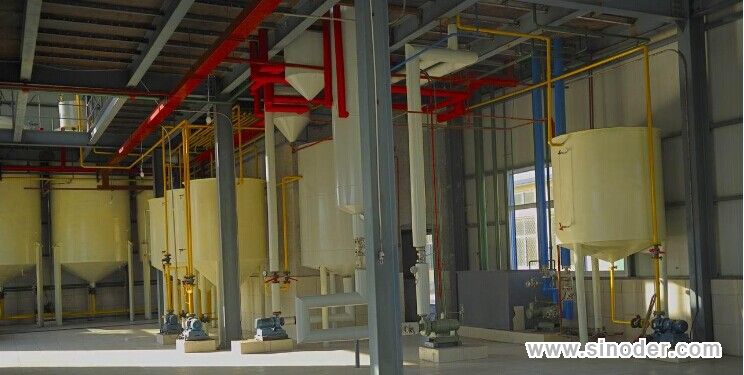
Features of Physical Refining
l High refinement rate; less oil loss
l No waste water discharged
l More FFA distilled
l Especially suited for highly acidic oils, and those of low gum content
Physical Refining is suitable for some kinds of crude oil with the less non-hydratable phospholipids and high FFA. It has the special characteristic than chemical refineing method.
Mainly including to the following steps.
1.Deguuming & Pre-bleaching
2. Dewaxing /Winterising /Fracnation
This is only for the several kinds of veg oil ,such as sunflower,cottonseeds,palm,rice bran,etc.
3.Distilling for neutralizing & bleaching,deodorizing
Features of Chemical Refining
l Excellent adaptability and fewer requirements for high oil quality
l The finished oil is consistent and stable
l Less bleaching earth necessary compared with physical refining
It is widely suitable for small type refining mill,specially for the soy oil refinery.
In this process, the crude veg. oil filtered is added into the acid and NaOH for neutralization and degumming to separate FFA's, phospolipids and other impurities.
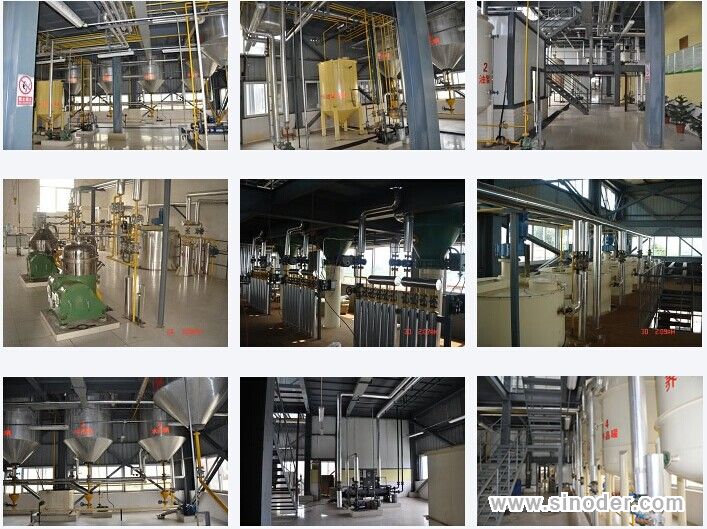
Main Steps of Edible Oil Refining
1. Crude Oil Degumming: In this step gums in crude oil are removed by hydration with the help of phosphoric acid.
2. Neutralization: In this step free fatty acids are neutralized by using sodium hydroxide and convert them into soap. Additional impurities are also removed by adsorption on soap.
3. Bleaching: During bleaching, unwanted pigments are adsorbed physically and oil will become much clearer.
4. Deodorization: Deodorization is used to remove unacceptable odors by steam distillation, the odoriferous compound are stripped off with the help of live injected steam into heated oil under high vacuum pressure.
5. Dewaxing (necessary for cold areas)
Some kinds of oil like sunflower, maize germ or corn oil have waxes inside, if these impurities are not removed, the oil will freeze easily under low temperature, thus effecting oil quality and appearance. so this process is necessary in extremely cold areas.
Some Edible Oil Refining Equipment Instruction
1. Decoloring tank: bleach pigments from oil.
2. Deodorizing tank: remove the un-favored smell from decolorized oil.
3. Oil furnace: provide enough heat for the refining sections which need high temperature of 280℃.
4. Vacuum pump: provide high pressure for bleaching, deodorization which can reach 755mmHg or more.
5. Air compressor: dry the bleached clay after bleaching.
6. Filter press: filter the clay into the bleached oil.
7. Steam generator: generate steam distillation.
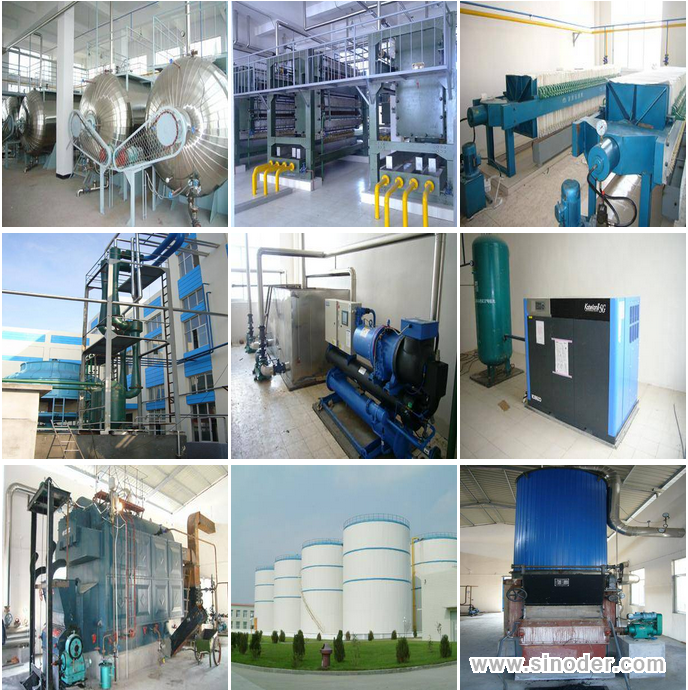
Vegetables Oil Making Plant Projects
FAQ:
Our
Sinoder Indutech Machinery Company supply the complete set of Cooking oil production line machinery including sunflower oil production line, palm oil production line, soya bean oil production line, peanut oil production line, cotton seeds oil production line, maize corn germ oil production line, clamelia oil production line, rapeseeds oil production line, canola oil production line, coconut cropra oil production line, shea oil production line, groundnuts oil line, sesame oil production line,black seeds oil production line, jatropha seeds oil production line,moringa seeds oil production line and other vegetables oil processing machines.
Q1 : Which kind of materials can be processed?
All kinds of oil seeds. For example, sunflower seeds, rice bran, corn germ, palm fruit, palm kernel,coconut,peanut, soybean, sesame, cottonseeds, rapeseed, etc.
Q2 : What's the capacity?
Generally, 10-5000 tons per day. We can also manufacture as per customers' requirements.
Q3 : How long is the warranty?
The main parts of the machine come with one year warranty and after the expiration our engineer is available overseas to do the maintenance work.
Q4 : Can the machine be installed locally?
We can do the turn-key projects or other services according to customers'requirements,according to this condition,our services can be manufacturing,purchasing,transporting,installation,training labors etc.
Q5 : How to operate the machine?
Our engineers will be available to guide and train your labors how to operate and run the machine.
If you want to know more the vegetable oil processing machines and cooking oil refinery plants, pls feel free to visit our special webstie: http://www.oilgrainmachine.com and send us the detail requirements by email.
E-mail: rockwell@sinoder.com
Mobile Phone/Whatsapp: 0086-18037503060 (Mr.Rockwell Ni)
Video of Vegetable Oil Expeller System, Oil Cakes Solvent Extraction System, Extracted Oil Refinery System


